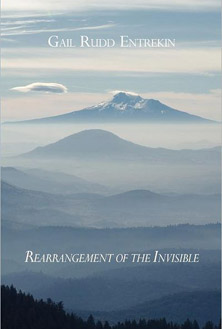
Published August 1, 2012 by:
Poetic Matrix Press
PO Box 1223, Madera, Ca 93639
Available for $15 from your local bookstore or
www.spdbooks.org or www.amazon.com
Part-lyric, part-narrative, part-novella in verse, these poems never stray far from their passionate appetite for life, fear of the unknown, and the titanic thrill and mystery of love. Many of these poems deal with the subtle realities of cancer diagnosis, chemo, the trance states of illness, the “wait and see,” the “opposite oceans” of waking and dreaming, and the life-defining clarity the threat of death sharpens. With life’s visible stuff blurring the invisible, still, love – ancient, un-prescribed, redeeming, intuitive – lights up the unseen.
Al Young, California poet laureate (2005-2008)
Book Reviews
These tender heartbreaking poems document a couple’s journey through loss. The small beautifully observed redemptions of domestic life are offered here, as solace and sacrifice. The whole collection throbs with love.
Alison Luterman, See How We Almost Fly (Pear Poetry Prize)
Gail Rudd Entrekin’s Rearrangement of the Invisible is both praise and eulogy, a cherishing of the moments of our lives and a sorrow song for their passing. Through it all we feel the force of her love—for her family and for all of us. We are, she tells us, sprung from the same source: “Like the aspen trees in the golden grove/ seem to be tall bouquets of shimmering yellow leaves/ in separate silver vases, but are really the same tree/ rising up from the same…winding root…” An honest, intimate, and wise book.
Ellen Bass, Author of The Human Line and co-editor of the classic anthology No More Masks
What a testament to good poetry that, although parts of this collection deal with Gail Entrekin’s support of her husband through the dire challenges of cancer, the effect is not self-pitying or woeful.
The poems model how such caring must be done, without excess dramatics. And behind the subject matter, the memories and dreams, these poems are keenly attentive to the selection of words and their careful arrangements. The poems themselves are another form of devotion.
Madeline Tiger, Birds of Sorrow and Joy
Poems
Figure-Ground Exercise
Some days we dream
and weep cancer, talk and write it,
carry it with us to the grocery store,
propped up in the back seat like a gaunt old man.
We put cancer in a high chair and feed it
scraps from the table, nominate cancer
for president because it is even handed
and blind. We find cancer all over
our hands when we wake in the morning
and we cannot scrub it away; we kiss it goodnight
when we turn to each other, put out the light.
We see cancer in the center of the drawing,
a curving vase, the rest of our lives
twin shadows on either side.
Better days
we cannot remember the word from our dreams
and once we get busy, it disappears.
There are pink roses outside the front window,
geese honking on their way to Puerta Vallarta
where they plan to gamble and drink green liqueur,
our cold toes poke each other playfully under the covers,
grandchildren stagger about on newly vertical legs,
and the rain plashes softly around the cradle of our sleep.
In the drawing we see two matching silhouettes
facing each other with abiding interest,
the shape between them
nothing but shadow
dark air.
Rearrangement of the Invisible
And here he comes again, that querulous old man
with his pointy hat, his knobby walking stick,
curl-toed shoes, pulling behind him the next installment
of your life, whether you’re ready or not,
sweeping ahead in his push broom the scraps
and shards of your story so far –
Just as you were getting used to the white roses,
those blowsy blooms along the edges of the lawn,
the doe steps delicately out of the dark
while you’re sleeping, incises every bud,
every blossom, leaving naked sticks piercing
the night, and despite the dog throwing herself
against the door, by the time you push it open,
stagger out in your threadbare nightshirt,
the deer has slipped away like a ghost
into the woods beyond the pointless fence.
You wake in the morning to a whole new landscape,
and when you cry out, wringing your hands and cursing,
the dog sits down and fixes you in her patient gaze –
she tried to tell you (but you wouldn’t wake up)
that the old man was passing down the road
rearranging your future, and the thing growing
in your bones, which won’t be identified for weeks,
is the seed of a whole new order.
Shaving Our Heads
I say I’ll shave my head, become a moon-
face bald pink shining defenseless-
seeming creature in some kind of funny hat,
when your hair falls out in tufts on the pillow case
in the morning, your crisp silver beard thins,
soft flesh under chin shows through.
When we shave our hair, our skin-covered skulls,
which we have never seen, will be revealed,
embarrassed in their naked whiteness,
their lumps and bumps and funny spots, no help
for the unfortunate contours of our faces,
our strange prominent nose or ears,
heads that haven’t been seen by anyone
since we were babies and our mothers
ran their fingers through our delicate fuzz,
our fathers palmed our noggins
in their callused hands, admired how like
heavy fruit we felt, and wondered who was waiting
inside these perfect structures,
these elegant bony domes.